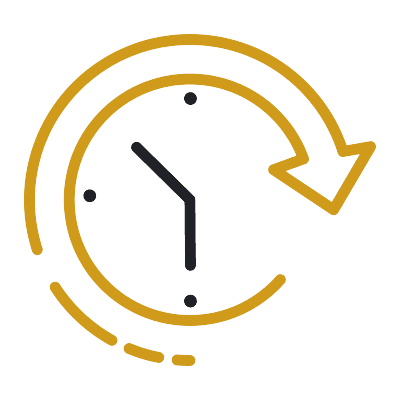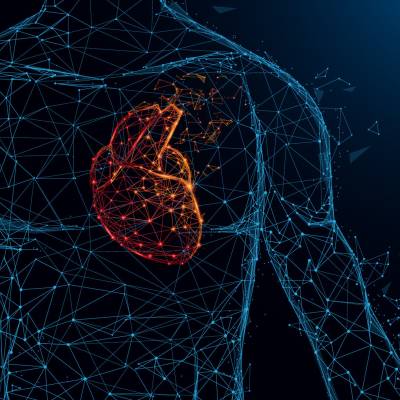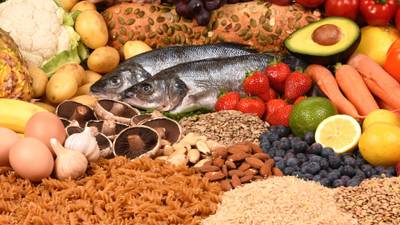Join a sustainable food systems course that puts you on the path to a Masters degree.
Find out how sustainable diets have a vital role to play in tackling some of our biggest global challenges, including:
- poor dietary health
- climate change
- environmental degradation, and
- achieving the United Nation’s Sustainable Development Goals.
In this interdisciplinary course, you’ll explore the complex nature of sustainable diets and how we can achieve them within a global food system.
Live online debate
You’ll have the chance to take part in a live debate between two world leaders in climate change and environmental sustainability.
Who is this global food systems course for?
This distance learning course is designed for graduates interested in sustainable diets, food sustainability, food systems, and the impact on the environment.
It’s ideal for health professionals, researchers, and government policymakers.
100% online and flexible, it’s designed to fit around full-time work.

Build credits towards a Masters degree
This online course is part of:
You can use the credits you earn on this short course towards either of these Masters degrees.
What you’ll study
You’ll investigate the many facets of sustainable diets, including nutrition, environmental impact, socio-cultural contexts and economics.
We take an interdisciplinary approach to this important topic.
And you’ll look at the drivers and challenges presented in trying to create sustainable diets around the world.
Topics you’ll cover
Elements of sustainable diets and associated global challenges
Global health and nutrition security
- Global burden of disease
- Nutrient requirements and dietary guidelines
- Food safety
Environmental impact of the food system
- Climate change
- Land, water, and biodiversity
- Food waste
Social, cultural and economic aspects of diets
- Socio-cultural aspects of eating
- Determinants of food choices
- Access and affordability
Sustainable diets: synergies and trade-offs
- Nutritional, environmental and social trade-offs
- Development and description of sustainable diets (eg, WWF Livewell and EAT-Lancet projects)
Drivers and opportunities for change for achieving sustainable diets
- Role of stakeholders
- Potential opportunities and solutions
External influences on the global food system and implications for sustainable diets
- Shocks to the food system
- Resilience of the food system and trade
By the end of this course, you’ll be able to…
-
Explain what a sustainable diet is.
-
Describe the need for sustainable diets, both nationally and globally.
-
Explain the complexity of sustainable diets, their different attributes, and how they combine into a single entity (synergies and trade-offs).
-
Identify some of the drivers and challenges of achieving sustainable diets.
-
Understand external influences of a global food system in delivering sustainable diets.
-
Apply an interdisciplinary approach to food systems research.
Why study global food systems online with the University of Aberdeen?

Fits around full-time work
This online course fits around work, with flexible hours and 24/7 study access.

Nutritional health pioneers
Study with the Rowett Institute. Governments and the food and drink industry have turned to us for research for decades.
Find out more about Rowett research
Unique expertise
Learn from tutors and scientists at the forefront of nutrition studies, publishing research into gut health, metabolism and obesity.
How you’ll study
Online learning
Our distance learning sustainable food systems course is delivered flexibly, 100% online. You can study with us anywhere in the world and manage your study hours to suit you.
Your teaching
This course is taught at Masters level.
Your teaching is delivered through MyAberdeen, our online Virtual Learning Environment (VLE). It holds all the materials, tools and support you’ll need in your studies. Take a look around MyAberdeen.
You can access your learning materials on computer, smartphone and laptop, 24 hours a day. You’ll find a range of resources at your fingertips, including:
- recorded lectures
- videos
- reading materials
- discussion boards with your colleagues and tutors
- the online resources of our award-winning Sir Duncan Rice Library.
Your tutors
You’ll learn from a team of internationally recognised nutritionists, health researchers and academics from the Rowett Institute and University of Aberdeen. Plus, you’ll have guest lectures from academics from other UK universities and organisations.
The Rowett Institute is one of Europe’s most prestigious nutrition research centres. It’s a market leader in the provision of online education in nutrition and health in the UK. Read about the Rowett Institute.
You’ll be assessed entirely online via:
- a 1,000-word report (worth 40% of your final grade)
- a 10-minute pre-recorded video presentation (60%).
The course totals approximately 150 hours of study and assessment time. That’s around 10 – 15 hours per week.
This is an indicative guide to the time required for a typical student at this level to achieve the learning outcomes. This includes time for independent study, as well as teaching and assessments.
You can largely set your own study hours each week to cover the materials. MyAberdeen is available 24/7, so you can log in and study when it suits you.
Activities at fixed times
There may be some activities scheduled for fixed times. This could include coursework and assessments with deadlines, or online meetings with your tutor. Otherwise, you can access and work through the course at your convenience.
Our first-class support structure will ensure that you aren’t alone in your studies. You’ll have contact with your tutors via MyAberdeen and email. You can use social media and discussion boards to chat with your fellow students too.
We provide a wide range of services to support you in your studies and beyond:
- Careers and Employability Service
- Disability support
- IT support
- Library support
- Student Support Service – help with finances, wellbeing and non-academic issues
- Student Learning Service – study support, with advice sessions available
- Aberdeen University Students’ Association (AUSA) – run by students for students
- Toolkit – clever apps and free training that can make your study life easier
Wherever you are in the world, you’ll feel part of our very special Aberdeen learning community.
Your course coordinator

Dr Janet Kyle
Janet is a lecturer and Public Health Nutritionist. She has worked on many dietary and nutritional epidemiology projects with a focus on Healthy Sustainable Diets. She has also co-authored articles on nutrition and climate change to create sustainable diets.
View Janet’s profileWhere this will take you
Towards a Masters
You’ll earn 15 credits at Masters level (SCQF Level 11) with this distance-learning course. You can use these credits towards our:

Masters in Applied Health Sciences
Fast-track your career in healthcare with our uniquely flexible MSc Applied Health Sciences. Study 100% online or combine with on-campus courses at our Foresterhill Health Campus. 10% discount for NHS staff.
View MSc Applied Health Sciences
Masters in Clinical Nutrition
Join an online Nutrition degree accredited by the Association for Nutrition. Study the link between diet and health, and how issues of over and undernutrition affect populations today. 10% discount for NHS staff.
View MSc Clinical NutritionBuild your learning with more short courses
We have a range of online nutrition and healthcare courses you can use to build your skills.
Many carry credits you can build up into postgraduate qualifications, including Masters degrees:
On-campus nutrition and health degrees
You may also be interested in developing your skills and qualifications in this area further with these postgraduate on-campus options:
Careers
The interdisciplinary nature of this course provides a great base for a career in this or related fields.
Your learning could help you progress in or work towards a career in this area within:
- academia
- industry
- government and policymaking
- the third sector.
Continuing professional development (CPD)
Your employer or professional institute may recognise this course for CPD hours. Talk to your employer or institute to find out more.

Free career support
Access our free careers service while you study.
- 1:1 appointments
- CV checks
- Interview prep
- Job opportunities
Entry requirements
Entry requirements
We welcome students from all over the world.
This course has no formal entry requirements. You do not need to provide proof of your qualifications.
But you do need to check the entry guidance above to understand the level of teaching delivered, to decide if this course is right for you.
If you do not have qualifications from the UK, check the equivalent teaching level for your country.
Visa requirements
You do not need a student visa to study online with us.
English language requirements
Teaching is delivered in English.
You do not have to provide proof of your English language skills to join this course. But we want to make sure that you can use English well enough to study successfully.
Recommended level of English
This course uses our Postgraduate Higher level of English language proficiency.
These are our Postgraduate Higher requirements, and these are minimum scores.
IELTS Academic, IELTS UKVI Academic, or IELTS Online (not IELTS Indicator or IELTS General Training)
- 6.5 overall
- 5.5 for listening and speaking
- 6.0 for reading and writing
TOEFL iBT or TOEFL iBT Home Edition
- 90 overall
- 17 for listening
- 21 for reading
- 20 for speaking
- 21 for writing
- TOEFL DI code is 0818
Cambridge English: B2 First, C1 Advanced, or C2 Proficiency
- 176 overall
- 162 for listening and speaking
- 169 for reading and writing
LanguageCert Academic / LanguageCert Academic SELT
- 70 overall
- 60 for listening and speaking
- 65 for reading and writing
Oxford ELLT Digital – English Language Level Test Online
- 7.0 overall
- 5.0 for listening and speaking
- 6.0 for reading and writing
PTE Academic (online test not accepted)
- 62 overall
- 59 for listening, reading, speaking and writing
Skills for English: SELT
- B2 pass with merit
Duolingo – tests taken from 1 July 2024 onward
- 120 overall
- 95 for listening and speaking
- 105 for reading and writing
University of Aberdeen English Pre-sessional Programme (PSE)
- Pass
- Valid for one year. Refresher can be offered if out of date
Pre-sessional academic English preparation programmes undertaken at other UK universities
- Pass at an equivalent of 6.5 (C1)
- B2 in all four skills
- Certification must be within one year prior to the start of your course
For more information about language qualifications see our English Language Requirements page.
You will need access to:
A computer (PC, laptop or Mac) with an up-to-date operating system
Most teaching materials are smartphone- and tablet-friendly. But we recommend a proper laptop or desktop for completing assignments comfortably.
Reliable internet access
We recommend:
- a wired connection
- a minimum download speed of 2 Mbps so you can take part fully in live sessions.
Speakers or headphones
- We recommend a headset with built-in microphone and earphones if you’re likely to study in an environment with background noise.
- A webcam is optional, but you may like to use one for some interactive sessions.
Software
We’ll give you access to Office365 applications. This means you can use online versions of Microsoft Word, Excel, PowerPoint and OneDrive and install these programs on up to five personal devices.
If your course requires specialist software, we’ll provide you with access to this and a licence that lasts throughout your studies.
See our detailed IT requirements for more information.
When you study with us, you can expect a first-class support structure so that you’re never alone in your studies.
But learning online does mean you have to motivate yourself and manage your own time.
Your most important commitment will be time – the time to work through, reflect on and understand your teaching materials.
Before you start a course that involves a high degree of independent study, we recommend looking at the time you will be able to devote to your studies each week:
- Be realistic
- Create a weekly schedule as a guide
If you have any questions about studying online, get in touch with our friendly team. We’re here to help.
Fee payment
Your course fee needs to be paid in full before you start your course.
We accept payment via Visa Debit, Visa Credit and Mastercard.
Ways to save
You may be able to get help funding this course via:
- discounts – if any discounts are available for this course, they’ll appear in the section below
- employer sponsorship – we accept full and partial fee payments from sponsors.
Find out more about funding options.
Student card
All our students are entitled to a University of Aberdeen student card. This gives you access to a range of student discounts around the city and online.
This course has no formal entry requirements. You decide if it’s suitable for you.
The course is delivered at Masters level. At this level, you’d usually have at least:
- a 2:2 (second-class) undergraduate degree in Biological Sciences or Life Sciences
- or relevant experience that supports this level of study.









